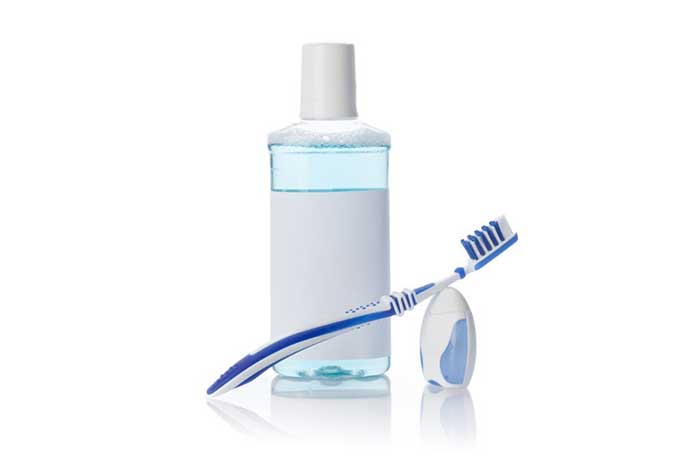How to Choose the Best Mouthwash for You

Even if you have your brushing and flossing routine down to a science, there are times when your oral hygiene could use a little boost. You may be looking for an extra clean feeling after brushing, trying to prevent cavities, or actively avoiding gingivitis, but whatever the reason, mouthwash can be an effective tool in your oral hygiene routine. When added to a regular regimen of brushing and flossing, it adds another element to your preventative dental care. But take a walk down the oral care aisle of any store, and you can?t help but marvel at the sheer amount of choices on display! There are too many mouthwashes on the market to count, so how will you know which one will work best for you?
Here at Christopher Cooley DDS, we’re excited about anything that contributes to better dental health, so let?s take a look below at what mouthwashes have to offer, and how you can find the right one for you.
Why Should You Use Mouthwash?
Mouthwash covers areas of the mouth that a toothbrush and floss may not be able to reach, like the gums and other soft tissues. If you? ve struggled with gingivitis, periodontal disease, or even a chronically dry mouth, rinses can be particularly helpful. It is important to remember, however, that mouthwash isn’t a substitute for regular brushing and flossing. It’s at its most effective as an addition to your daily oral hygiene routine.
What Are the Different Types of Mouthwashes?
There are two basic types of mouthwashes, cosmetic and therapeutic. Cosmetic rinses will temporarily improve your breath and create a pleasant taste in your mouth. However, it won’t kill the bacteria that cause bad breath. Therapeutic mouthwashes, on the other hand, do impact oral bacteria and introduce healthy nutrients to the mouth. The active ingredients in therapeutic rinses work to improve issues like bad breath, gingivitis, plaque, and cavities. Some of these ingredients include:
- Cetylpyridinium chloride ? to reduce bad breath
- Chlorhexidine ? to help control plaque and gingivitis
- Essential oils ? can also help with plaque and gingivitis control
- Fluoride? prevents decay
- Peroxide? whitens teeth
Because many therapeutic rinses are quite strong and formulated to improve specific health concerns, they tend to be available by prescription only, but there are a few that are available over-the-counter.
Who Should Use Mouthwash? Who Shouldn’t?
Anyone over the age of six can benefit from the use of mouthwash. There are rinses indicated specifically for younger children, which will typically be fluoridated and alcohol-free. Children should be supervised while using mouthwash to ensure they don’t swallow it. Incidentally, this is the reason rinses are not recommended for children under six years of age. They have not yet developed the reflexes that prevent them from swallowing the mouthwash while it’s in their mouths. Ingesting mouthwashes can lead to nausea, vomiting and even intoxication if the rinse contains alcohol.
There really is a mouthwash available for just about everybody. Some of the most common reasons people choose to use it include:
Prevention
However careful we are with brushing and flossing, some of us are simply more likely to develop cavities than others. A fluoridated rinse can be beneficial because fluoride strengthens the tooth enamel for further protection against oral acids. For those dealing with deep fissures in their teeth, these rinses can be particularly helpful, since the liquid can access tight spots in a way toothbrushes can’t.
Fresh Breath
Chronic bad breath should always be examined by a dental professional like Dr. Cooley, but if you? re looking for nothing more than a daily pick-me-up, there are rinses available that focus on freshening breath. These typically contain chlorine or zinc, which will freshen your breath without the harshness of added alcohol.

Bacteria
If you struggle with halitosis, plaque buildup, or gingivitis, you may benefit from a change to the bacterial environment in your mouth. Antibacterial rinses can accomplish this by using more alcohol in their formulation, which helps to kill harmful bacteria that are present in the mouth at any given time. Before choosing an antibacterial mouthwash, check in with a dentist like Dr. Cooley to be sure you select one that is safe for your smile!?
Gum Disease
If you have gum disease, mouthwash won’t resolve the problem. You should be under the care of a professional like Dr. Cooley to treat the issue before the disease worsens. However, there are rinses that can help you manage gum disease and prevent it from returning. We may even be able to prescribe a rinse for you that will help reduce the redness, swelling, and bleeding that can accompany gum disease.
What Are the Benefits of Using Mouthwash?
As we’ve touched on above, mouthwash can be an effective tool in the fight against tooth decay and gingivitis and helps promote healthy teeth and gums. Some of the benefits you can expect from adding mouthwash into your daily dental hygiene routine are:
Better Breath
An obvious benefit, mouthwash can temporarily reduce bad breath. It comes in a variety of flavors, with some versions able to kill the bacteria that causes bad breath, and others merely masking it.
Plaque Prevention
Most mouthwashes will help prevent plaque build-up on your gums, in between your teeth, and on the surface of your teeth in between brushings. Although these rinses can prevent plaque from building up, they can?t reduce plaque that already exists. That?s why brushing and flossing are still the most crucial elements of your hygiene routine!
Removes Food Particles
Although most people use mouthwash only after brushing, consider using it before you break out the toothbrush, or after you? ve has eaten anything. This practice can help loosen any rogue food particles in your mouth, making brushing and flossing more effective overall.
Keep Cavities at Bay
By using mouthwash regularly, both before and after you brush and floss, you can reduce your risk of cavities forming. Mouthwashes that contain fluoride help to prevent cavities and also strengthen your enamel. Remember that not all mouthwashes contain fluoride, so be sure to check the label on your mouthwash before purchasing.

Keep your smile bright and healthy with Christopher Cooley DDS
No matter what type of mouthwash you choose to use, be sure to follow the instructions on the bottle, and always choose rinses that have the ADA Seal of Acceptance. This seal is a promise that the rinse has been proven to be safe, effective and has been thoroughly researched.
Using an ADA-approved mouthwash along with maintaining an excellent dental hygiene routine will go a long way towards keeping your teeth and gums healthy and happy. We also encourage you to visit us twice a year for a thorough check-up and cleaning. Dr. Cooley will be able to monitor your overall oral health for any potential problems, and our team will remove any plaque and tartar buildup, leaving you with a sparkling smile! If you’re in Memphis or the surrounding areas and want to schedule a check-up or learn more about how mouthwashes can benefit your mouth, get in touch with us today.
